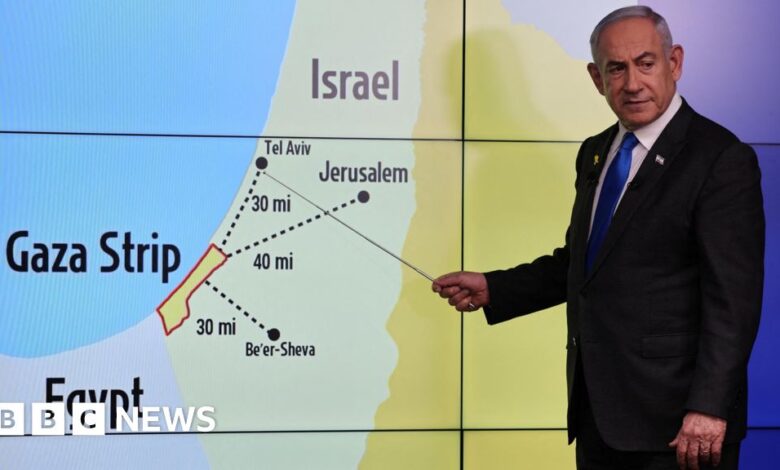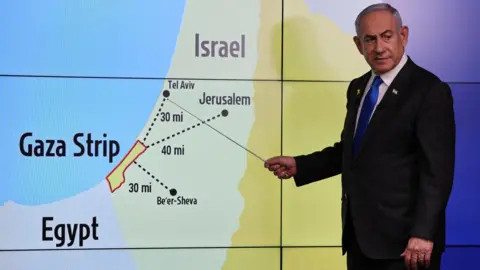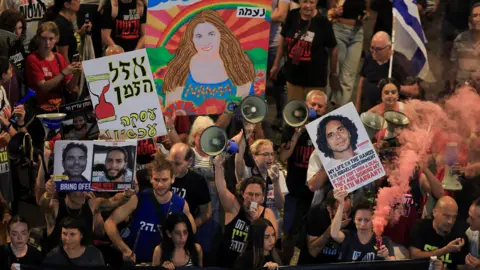Netanyahu strengthens control of Gaza border with Egypt

 Reuters
ReutersIsraeli Prime Minister Benjamin Netanyahu has reiterated that Israeli forces will not leave the Philadelphia Corridor – a strategically important strip of land south of Gaza along the border with Egypt.
He told foreign media in Jerusalem that he was “open” to considering alternatives to the Israeli military presence along the Gaza-Egypt border, as part of any future permanent ceasefire agreement – but he did not see that happening.
Mr Netanyahu argues that Israeli troops must remain in the buffer zone to prevent weapons and the possibility of Israeli hostages being smuggled across the border.
Hamas said in a statement cited by Reuters that Netanyahu’s decision not to withdraw from the Philadelphia corridor was an attempt to sabotage the ceasefire, adding that it was time to put pressure on Israel.
Earlier on Wednesday, Mr Netanyahu said conditions for any permanent ceasefire must include “a situation where the Philadelphia corridor cannot be penetrated”.
If someone could demonstrate “not on paper, not in words, not on slides, but in practice, day after day, week after week, month after month that they could actually prevent a recurrence of what happened there before we were ready to look at it,” he said.
But, he continued, “I don’t see that happening. […] And until that happens, we’re still there.”
His comments opened a small crack in his repeated assertion that Israeli forces would not leave Gaza’s southern border.
But he also stressed that Israel needs to keep troops there for its own security, calling it a “red line”.
“People say: this will kill the deal,” he continued. “And I say: a deal like this will kill us.”
He stressed that making further concessions after Hamas killed six hostages last week was “illogical”, “immoral” and “crazy”.
“We have red lines. They do not change. We will maintain them.”
 Reuters
ReutersHis security officials, including the defense minister, are said to have favored alternatives to a military presence along the border, such as technological solutions to monitor activity there or the presence of allied forces.
Leaks to Israeli media have described arguments between the prime minister and defense ministers during meetings, in which Netanyahu was accused of not wanting to reach any agreement.
More and more people here believe that the prime minister is stalling for time and that his real goal is to find and kill Hamas leader Yahya Sinwar before the war ended.
Mr Netanyahu said he was defending Israel’s security in the face of extraordinary international pressure. And Hamas was blocking the deal.
Talks on a permanent ceasefire will only take place once Israel and Hamas agree to begin the first phase of a three-step plan. is being strongly promoted by US President Joe Biden..
Israel’s National Public Radio quoted an unnamed senior official as saying that the chief negotiator, Mossad chief David Barnea, had conveyed to the mediators Israel’s agreement to withdraw troops from the border at a later stage of the ceasefire.
But even reaching consensus at this early stage is proving difficult, as many issues remain unresolved.





